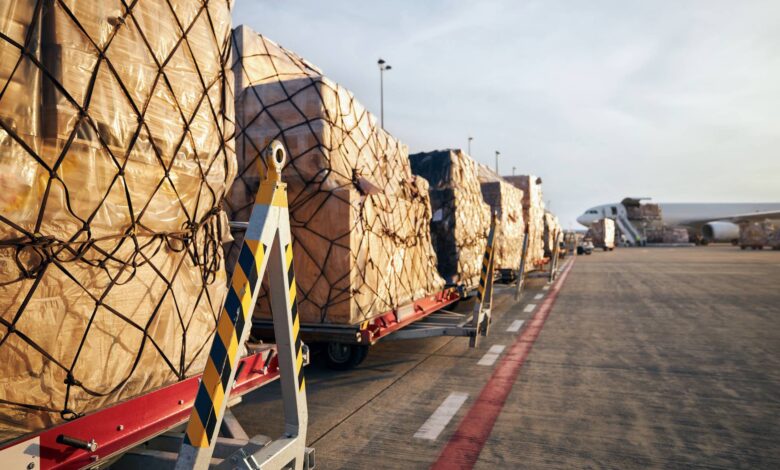Freight Companies in Australia: Navigating the Backbone of the Economy

Freight companies are a critical component of Australia’s economy, underpinning industries from agriculture to manufacturing. As the country boasts vast distances between its major cities and remote regions, efficient and reliable freight services are essential for maintaining economic vitality and ensuring the smooth flow of goods. This article delves into the landscape of freight companies in Australia, exploring their roles, challenges, and future trends.

The Role of Freight Companies
Freight companies in Australia are responsible for transporting goods across the country and internationally. They handle various cargo types, including raw materials, consumer goods, and specialized equipment. These companies operate through multiple modes of transport, including road, rail, air, and sea, often combining these modes in multimodal logistics solutions to optimize efficiency and cost-effectiveness.
Road Freight
Road freight is the most prominent mode of transport in Australia, accounting for the majority of domestic freight movements. With an extensive network of highways and roads, trucking companies play a crucial role in connecting urban centers with rural and remote areas. Companies like Linfox and Toll Group dominate the road freight sector, offering comprehensive services that include long-haul transportation, express delivery, and specialized logistics solutions.
Rail Freight
Rail freight is vital for transporting bulk commodities such as coal, minerals, and agricultural products. Australia’s rail network spans thousands of kilometers, connecting mines and farms with ports and processing facilities. Major players like Aurizon and Pacific National lead the rail freight industry, providing critical infrastructure for the nation’s export-driven economy.
Air Freight
Air freight is essential for high-value and time-sensitive goods, such as electronics, pharmaceuticals, and perishable items. While air freight represents a smaller portion of the overall freight market, it is crucial for maintaining supply chain efficiency in a globalized economy. Companies like Qantas Freight and Virgin Australia Cargo provide air freight services that connect Australia with international markets, ensuring swift and reliable delivery of goods.
Sea Freight
Given Australia’s geographic isolation, sea freight is indispensable for international trade. Ports like Sydney, Melbourne, and Brisbane serve as major gateways for imports and exports, handling containerized cargo, bulk goods, and vehicles. Shipping lines such as Maersk and CMA CGM, along with local operators, facilitate sea freight operations, enabling Australia to engage in robust trade with countries worldwide.
Challenges Faced by Freight Companies
Geographic and Infrastructural Challenges
Australia’s vast and often inhospitable terrain presents significant logistical challenges. Freight companies must navigate long distances, harsh weather conditions, and sparse infrastructure in remote areas. Investments in infrastructure, such as the Inland Rail project, aim to improve connectivity and efficiency, but these initiatives require substantial time and resources.
Regulatory and Environmental Constraints
Freight companies operate within a complex regulatory framework that encompasses safety, environmental, and operational standards. Compliance with these regulations is crucial but can be burdensome. Additionally, the industry faces growing pressure to reduce its environmental footprint. Innovations in fuel efficiency, alternative energy sources, and sustainable practices are essential for meeting these challenges.
Technological Advancements and Integration
The freight industry is increasingly leveraging technology to enhance operations. Innovations such as GPS tracking, automated warehousing, and data analytics provide greater visibility and control over supply chains. However, integrating these technologies requires significant investment and poses challenges related to cybersecurity and data management.
Future Trends and Opportunities
E-commerce and Last-Mile Delivery
The rise of e-commerce has transformed consumer expectations, driving demand for fast and reliable delivery services. Freight companies are adapting by investing in last-mile delivery solutions and leveraging advanced logistics technologies to meet these demands. Companies that can provide seamless and efficient delivery experiences will have a competitive edge.
Sustainability and Green Logistics
As sustainability becomes a key concern for businesses and consumers alike, freight companies are exploring green logistics solutions. This includes adopting electric and hybrid vehicles, optimizing routes for fuel efficiency, and investing in renewable energy sources. Companies that prioritize sustainability will not only reduce their environmental impact but also enhance their brand reputation and customer loyalty.
Global Supply Chain Resilience
The COVID-19 pandemic highlighted vulnerabilities in global supply chains, prompting freight companies to enhance resilience and adaptability. Diversifying supply sources, investing in robust logistics networks, and leveraging real-time data are strategies that will help companies navigate future disruptions and maintain reliable service levels.
Conclusion
Freight companies in Australia are the backbone of the nation’s economy, facilitating the movement of goods across vast distances and connecting the country with global markets. While they face significant challenges, advancements in technology and a focus on sustainability offer promising opportunities for growth and improvement. As the industry evolves, freight companies that can adapt to changing demands and invest in innovative solutions will continue to thrive, ensuring the steady flow of goods that keeps Australia moving forward.



